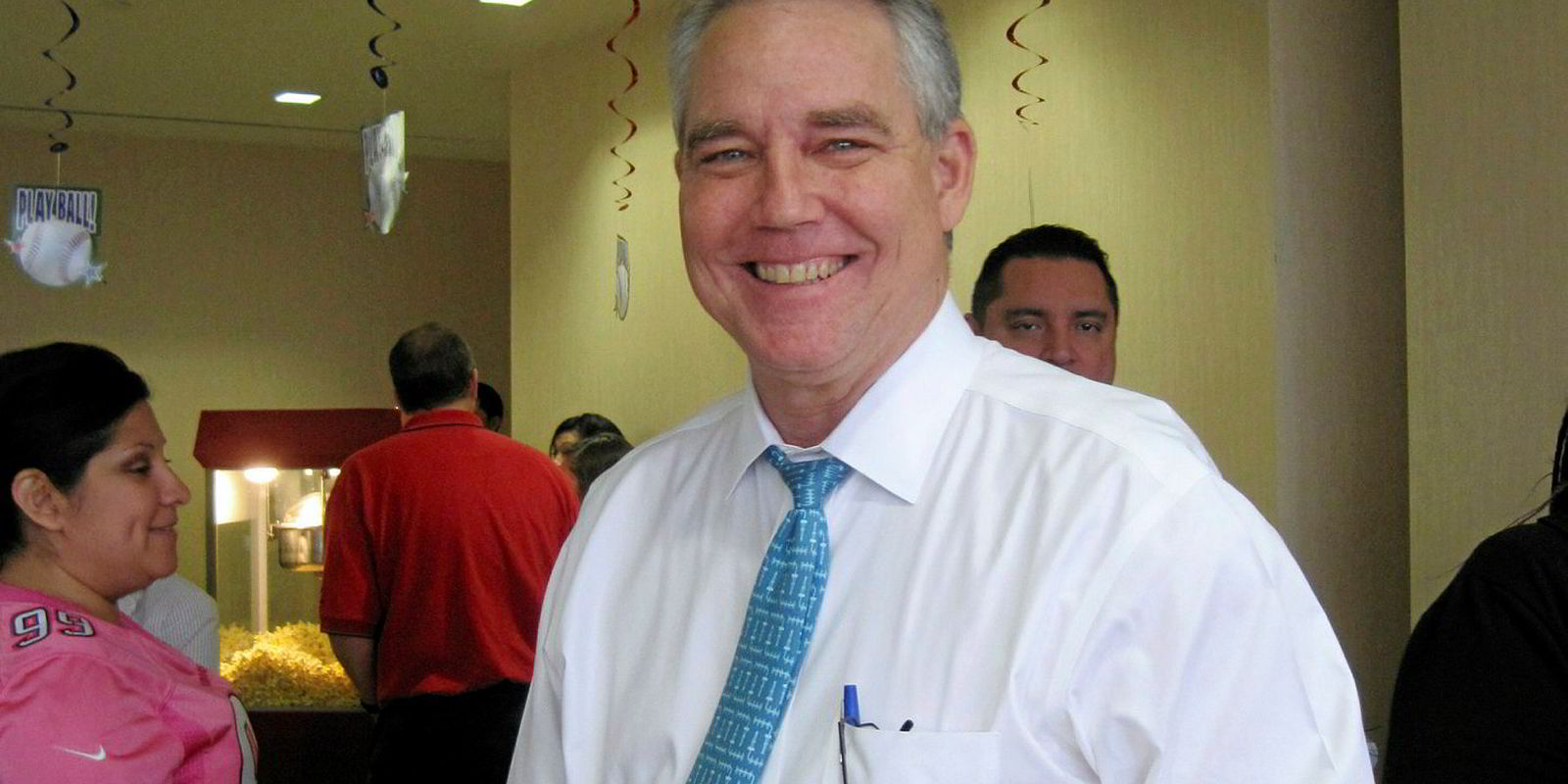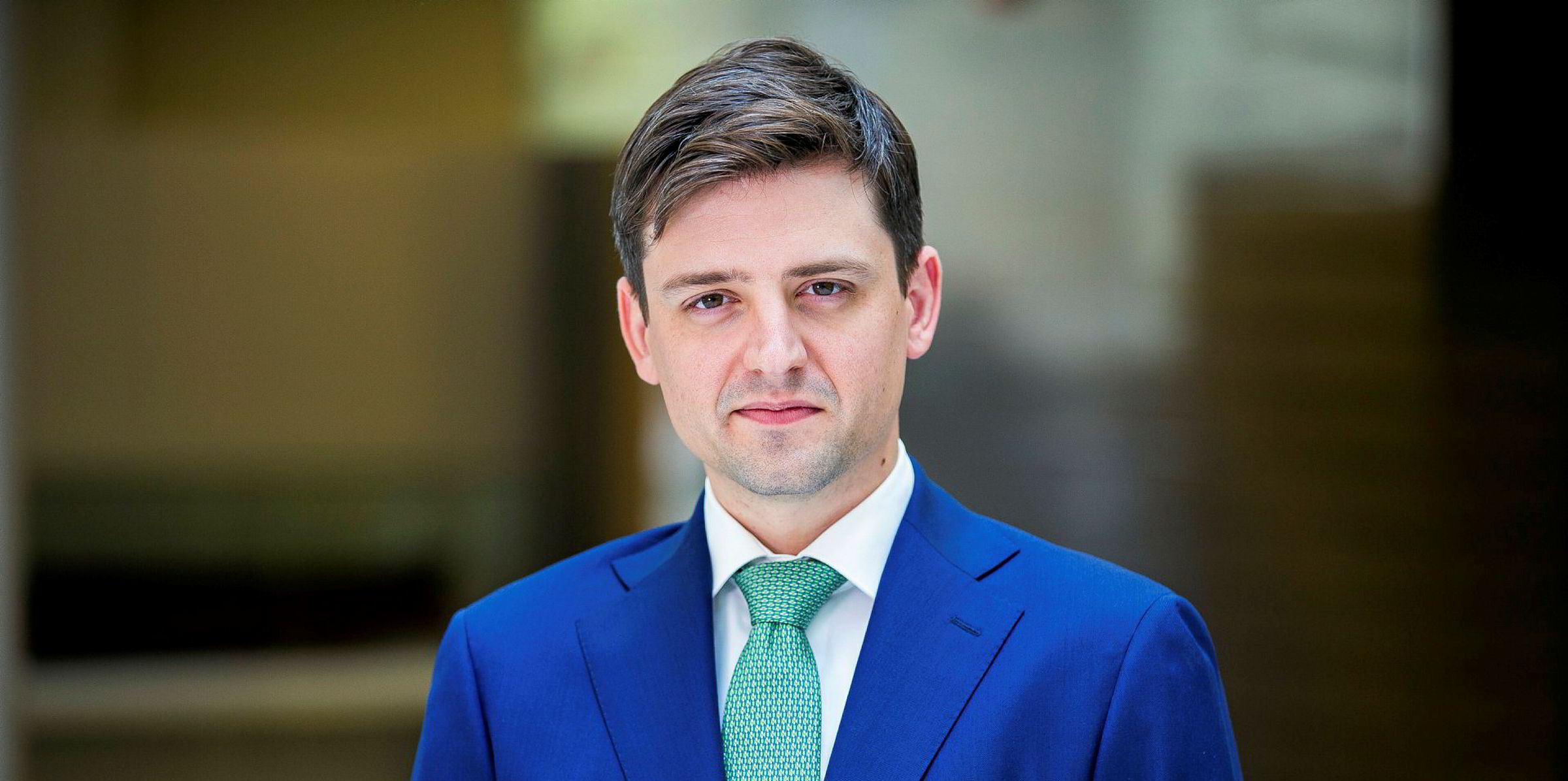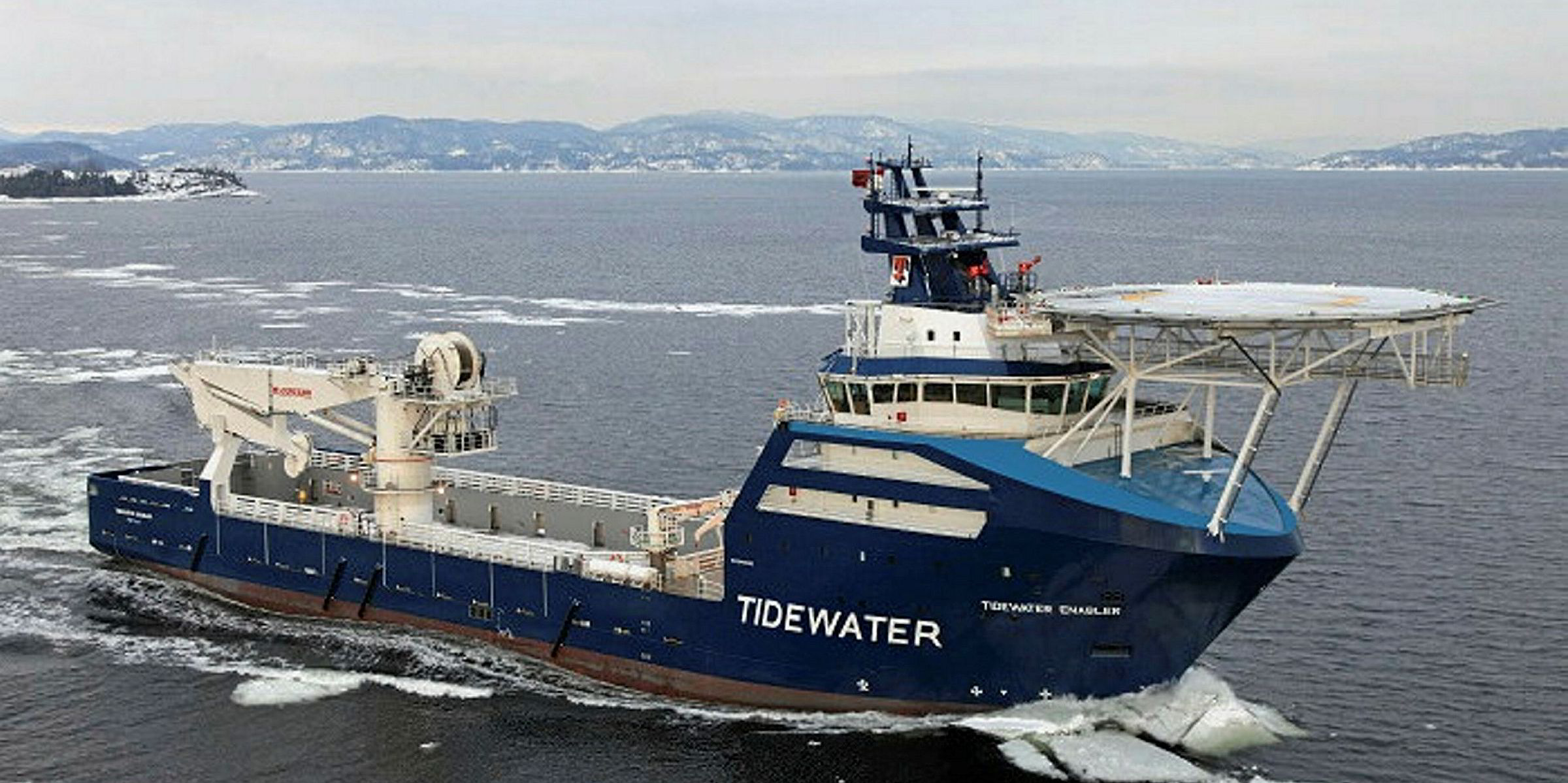Tidewater chief executive John Rynd is preaching restraint as the long, slow offshore recovery continues.
Speaking to TradeWinds at Marine Money Week in New York, Rynd said the world’s largest offshore support vessel owner was in the process of reactivating 10 ships — but hastened to point out that they all had work already.
“They all made sense,” he said. “We didn’t do it on a speculative basis.
“You don’t want people to reactivate without contracts. It’s a supply-driven business and if we have too much supply chasing too little work ... it will stunt the growth of day rates.”
Thanks to competition from shale oil, the Petrobras corruption scandal and an oversupply of vessels, the offshore sector has been mired in a multi-year downturn. Analysts expect it to finally start picking up thanks to a growing rig count and more offshore exploration.
Last month, Clarksons analyst Turner Holm said medium-sized OSVs would be fetching favourable rates by the end of 2020 and the largest ships were already earning $20,000 per day in the North Sea.
Rynd said 1,300 OSVs were laid up across the globe.
You could argue that as the market leader with a great balance sheet, why don’t we just reactivate 20 vessels? We could do it. It would do nothing but inflict pain on the industry. It wouldn’t make any sense
John Rynd
“As the market leader, we need to be the one that’s most disciplined,” he said.
“You could argue that as the market leader with a great balance sheet, why don’t we just reactivate 20 vessels? We could do it. It would do nothing but inflict pain on the industry. It wouldn’t make any sense.”
An alternative to avoid an oversupply by reactivation is increased scrapping, but many companies are heavy with debt, making combinations difficult, while family-owned players are unwilling to cull their fleets.
Houston-headquartered Tidewater closed a merger with GulfMark in November and integration of the two companies is expected to be completed by October.
The combined New York-listed company closed five offices, shed staff and plans to keep general and administrative expenses around $87m, which Rynd said on a panel was less than pre-combination Tidewater.
“The challenge right now on the M&A [merger and acquisition] front is that most of the opportunities come with very debt-laden companies,” he said. “We’re not assuming that debt.
“For M&A to kick off in our space, you have to have people clean up their balance sheets, restructure, face reality — 'hey, it’s a tough world, here are what my assets are truly worth'— and get on with business. We’re not going to bail somebody out or bail out a bank.”






